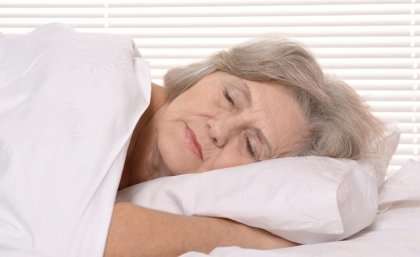Can 'sleeping' while you're awake boost brain function?

Mimicking sleep processes in the awake brain of elderly people could prevent age-related decline in brain function.
The University of Queensland's School of Health and Rehabilitation Sciences researcher Dr. Martin Sale is investigating if the brain can be made more resistant to age-related decline by artificially boosting sleep-like brain activity.
"Sleep plays a key role in promoting neuroplasticity – the ability of the brain to re-wire itself—but as sleep quality reduces as we age, our brain function is affected," Dr. Sale said.
"Sleep is important in helping to consolidate the changes to brain function that occur whilst you are awake.
"For example, if you have a good night's sleep after studying, you're much better at remembering the material you learnt for an upcoming exam.
"A portion of sleep, the deep part of sleep known as slow wave sleep, assists with strengthening the brain changes required for learning and memory that occur throughout the day.
"We would like to artificially cause the relevant brain regions to oscillate at this slow frequency, to mimic slow wave sleep, but when the brain is awake."
The researchers can achieve this by passing a small alternating electric current between two parts of a person's brain using a safe and often completely unnoticeable procedure.
"In essence we are tricking the brain into thinking it's asleep to harness the beneficial aspects of sleep even though it's still awake."
Approximately 50 per cent of adults complain of difficulty sleeping and approximately 20 per cent of adults aged over 65 have some form of cognitive impairment.
The researchers are looking for healthy right-handed elderly participants aged over 65 years to participate in the study.
















